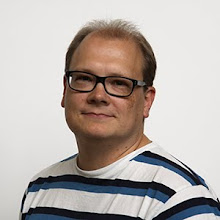This week our focus was Wikipedia, the well-known internet encyclopedia, and Wikimedia, the projects of Wikimedia corporation. I and my co-students have got two articles dealing with Wikipedia. Riehle's article presented an interview with three leading Wikipedia practioners and the other one was case study of Featured Article process in Wikipedia by Viegas et al. Our facilitators also hoped that we would think about what kind of impact of these will have an education and educational resources in future.
The first article by Riehle was fascinating. The interview handled basic questions of Wikipedia. Beforehand I have some kind of images what Wikipedia is, but I haven't any ideas how wide-ranging tasks and roles people are in there. Earlier I thought that Wikipedia is only free encyclopedia for all and anybody can add, edit and use this information. But now I understand that Wikipedia are well-defined structure and processes, where everybody can affect to the rules. It is self-governed community like Viegas et al. said. The biggest surprise to me was that the best articles in Wikipedia are typically written by a single or a few authors. I imagined that most of articles have been done with collaboration of expertises in the topic. So maybe in future there should become more collaboration between expertises. I hope so, because it could be useful in sense of science and its development.
In Riehle's article the challenges of Wikipedia in future was an interesting topic too. I agree with article that maintaining of openness is essential. I have noticed that students use more and more Wikipedia in their essays and assignments, even if material's credibility can vary in Wikipedia. It is obviously that students need media literacy today. How well we notice this in education? I'm remembering that some article in local newspaper handled with this question, and there was said that media literacy education varies between schools and interrelates with teachers and their own media skills in Finland. Students and pupils are unequal situation. We need media literacy education in comprehensive schools, but also at universities and other educational institutions.
Well, back to the credibility. I think that peer-review mechanisms add credibility in Wikipedia like in academic world. This ensure quality too. I referred early in my this blog to philosophy Tere Vaden. He has said that the credibility of Wikipedia comes through expert systems and peer-reviews. The most important question in Wikipedia isn't credibility, but freedom. Wikipedia is democratic for learning and knowledge. Of course in this kind of "project" credibility can vary, but in my experience Wikipedia contents relevant and reliable knowledge. I have recommended Wikipedia to my students in their references, but in the same time I have emphasized critical attitude.
Wikimedia was a big surprise for me. I haven't imagined that it contents so many projects. When I read the material and got familiar with it. I got a good idea to my own project. I will start to write Wikibook. We have a course named by Theories and models in health promotion and we have had problem to get suitable Finnish material, which is available easy. In this moment we have very relevant book, but it isn't easy to get from public and scientific libraries. I hope that I can tempt two my collagues to start this project. Well now it it time to continue to the next assignment.
Subscribe to:
Post Comments (Atom)


No comments:
Post a Comment